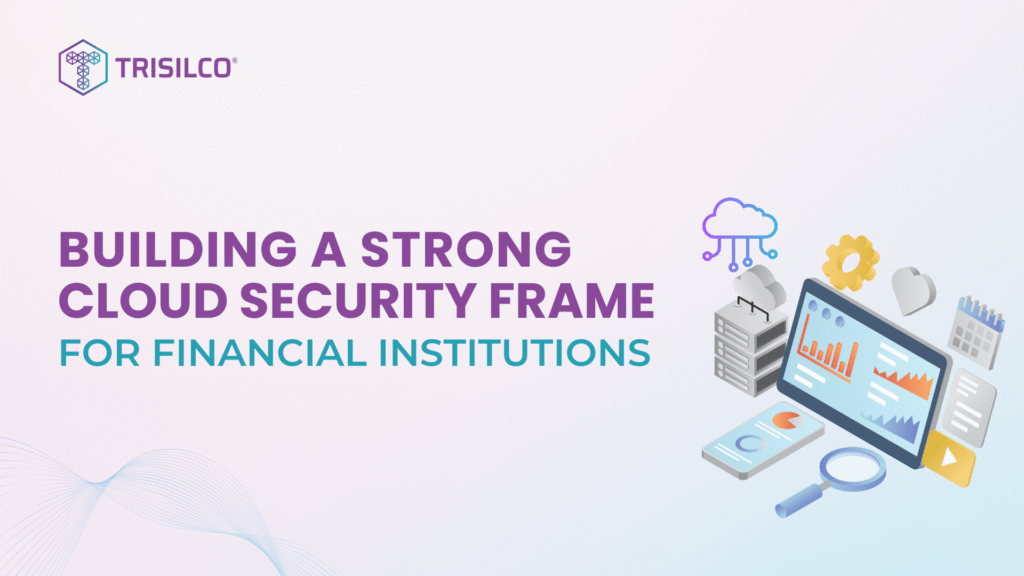Multi-Layer Security for Financial Institutions to Consider When Using a Cloud Based Solution

Cloud computing has revolutionized the way Financial Institutions (FIs) operate by offering unparalleled flexibility and efficiency. FIs are increasingly turning to cloud-based solutions to modernize their IT infrastructure, streamline operations, and enhance customer experiences. With cloud computing, FIs can leverage scalable resources on demand, reducing infrastructure costs and improving operational efficiency.
However, ensuring data privacy, regulatory compliance, and robust cybersecurity measures remain critical considerations in the adoption of cloud technologies within the financial sector.
When appropriate cloud security solutions are not deployed, it expose FIs to a wide range of risks and consequences. Thus, FIs should prioritize robust security measures.
Why is Cloud Security needed for Financial Institutions?
To Safeguard Customer’s Financial Data
FIs deal with an extensive array of sensitive financial information, including customer account details, transaction records, and proprietary financial models. Without robust security measures in place, they are vulnerable to data breaches, where sensitive financial information, customer records, and proprietary business data may be compromised.
With security measures, FIs can effectively safeguard sensitive financial information, customer records, and proprietary business data. As a result, the likelihood of experiencing a data breach is significantly reduced. By leveraging these advanced security features, banks can preserve their reputation, and uphold the integrity of the financial system.
Moreover, ensuring the security of financial data is essential for maintaining trust and confidence among customers and stakeholders. FIs are entrusted with safeguarding the financial assets and sensitive information of their clients. With this, banks can demonstrate their commitment to protecting customer data and preserving trust in their services.
To Mitigate Cybersecurity Risks
FIs are prime targets for cyberattacks due to the valuable financial information they possess, making them vulnerable to various threats such as theft by malicious actors, ransomware attacks, and phishing scams.
With security measures, it allow FIs to enforce strict authentication mechanisms and limit access to sensitive information only to authorized individuals. FIs can minimize the risk of insider threats, unauthorized access, and privilege escalation, and enhance overall security posture.
It also provides continuous monitoring and real-time threat detection capabilities which enable to detect and response to cyber threats promptly. By monitoring network traffic, user activities, and system events, FIs can detect unusual behaviour or anomalies that may indicate security incidents.
Complying with Regulatory Requirements
FIs in Malaysia are subject to a myriad of regulatory frameworks and legal obligations established by regulatory authorities such as Bank Negara Malaysia (BNM), General Data Protection Regulations (GDPR), and other relevant bodies. These regulations are designed to safeguard consumer interests, ensure fair practices, and maintain the stability and integrity of the financial system.
With security measures in place for compliance, it ensures that FIs adhere to and uphold the highest regulatory standards and regulatory compliance, and maintain the integrity of their operations. With this, FIs can demonstrate their commitment to protecting customer information, preventing fraud, and mitigating risks associated with cyber threats.
FIs can also avoid potential fines and strengthen their reputation in the financial landscape. Moreover, compliance-driven security measures enable them to adapt to evolving regulatory requirements and industry best practices, ensuring that they remain resilient in the face of emerging threats and challenges.
What Multi-Layer Solutions Are Recommended for Banks to Ensure Robust Security Protection?
Vulnerability Access and Penetration Test (VAPT)
Vulnerability access means having the ability to identify, access, and potentially exploit vulnerabilities within a system or network.
Penetration testers who are known as security professionals, are given permission to the system’s defences. They can gain the necessary access to test the vulnerabilities in a controlled and authorized manner to ensure no real damage occurs. This is known as penetration test.
VAPT can help FIs reduce their risk of data breaches and other cyberattacks, improve their security and compliance posture, enhance their reputation, and maintain operational stability. These practices enable them to proactively manage risks and protect sensitive data.
Login Security App
It is a specialized application designed to enhance the security of user logins for cloud platforms. This application is to include features such as password policy enforcement. It enforces complex passwords with minimum length, mixed case, numbers, and special characters, mandates regular changes to reduce compromise risk, and prevents the reuse of recent passwords to ensure uniqueness.
This significantly enhance FIs’ security through strong, regularly updated passwords, ensuring compliance with regulatory standards, reducing the risk of unauthorized access and cyber-attacks.
Vulnerability Assessment with Defender Management
Vulnerability Assessment is a process of identifying, quantifying, and ranking the vulnerabilities in a system. With defender capabilities, it offers continuous monitoring and assessment for potential security weaknesses, misconfigurations, and threats.
Each of these practices contributes uniquely to a robust security strategy, offering insights and recommendations. This is crucial for FIs in mitigating risks, addressing security vulnerabilities, and protecting against cyber threats, thereby helping FIs strengthen their security posture.
Azure Security Center
A security management tool that provides advanced threat protection across hybrid workloads in the cloud and on-premises. It helps FIs to reduce exposure to attacks and respond to detected threats quickly.
As the financial landscape becomes increasingly digitized, the significance of robust IT security within FIs cannot be emphasized enough. Ensuring the protection of customer data, thwarting cyber threats, complying with regulatory requirements, and upholding trust is fundamental for the industry’s prosperity and sustainability.
By implementing robust authentication measures, a focus on safeguarding data privacy, utilization of threat intelligence, fostering collaboration, and commitment to investing in technology, banks can strengthen their IT security stance and safeguard the integrity of the financial landscape.